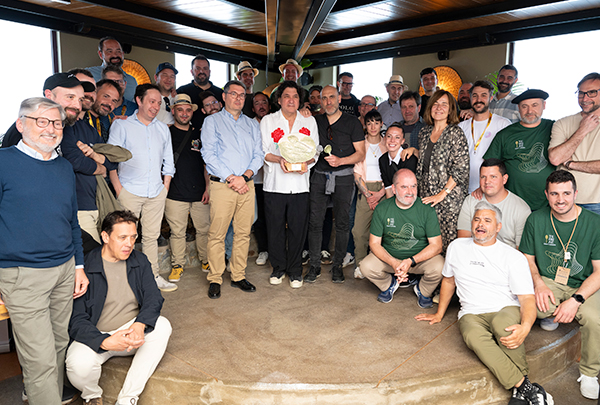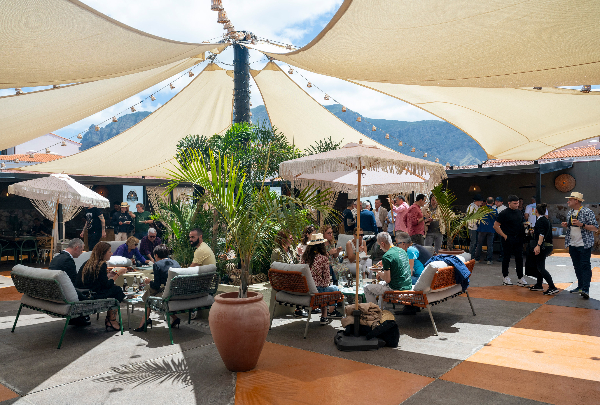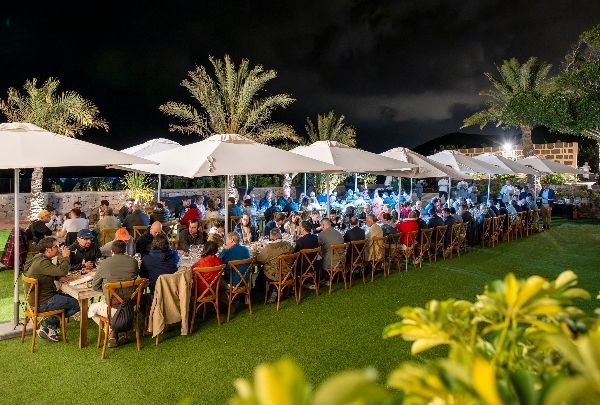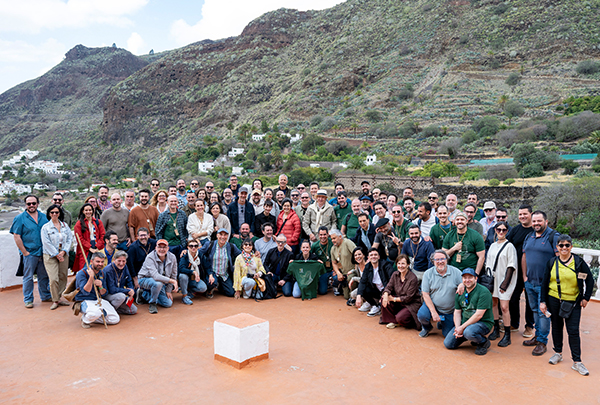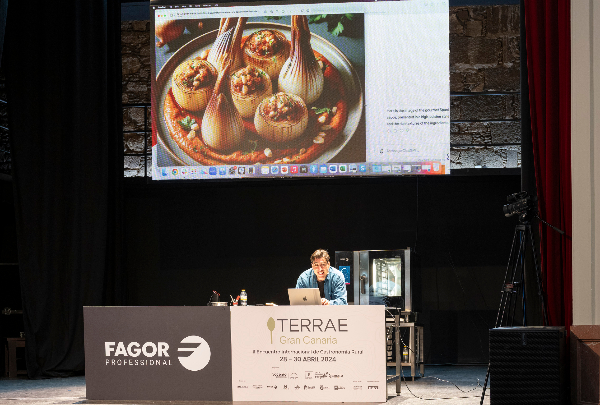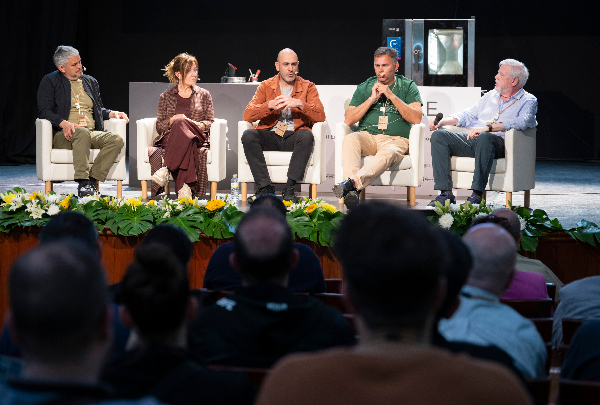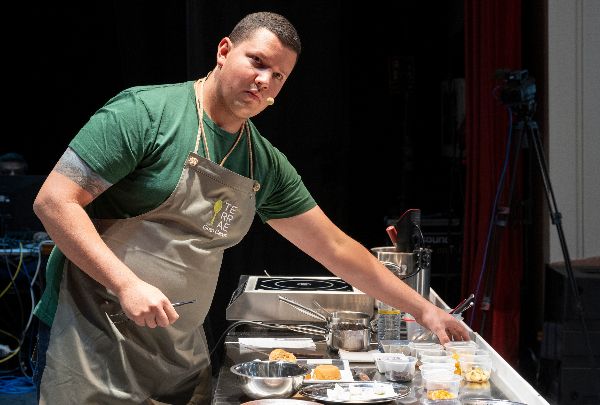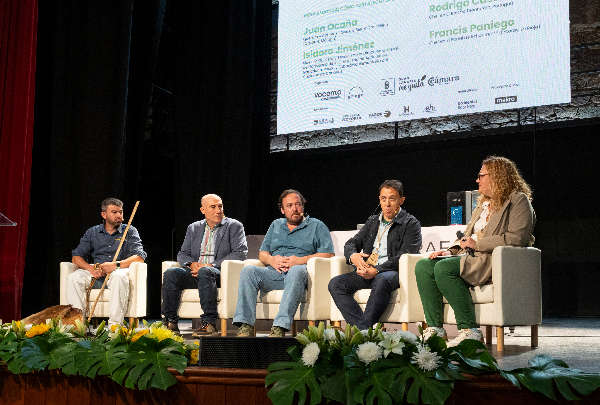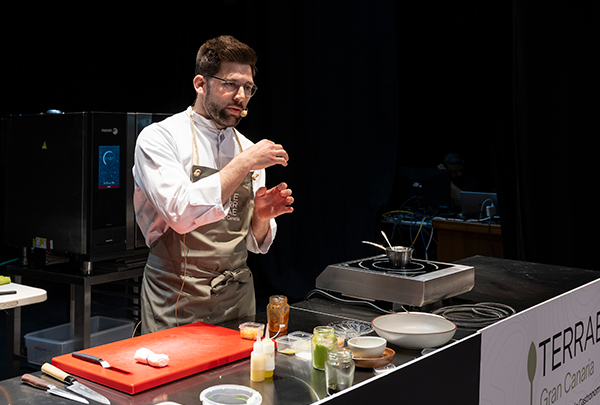News
Tunera and Canary pine, the delights of Muxgo
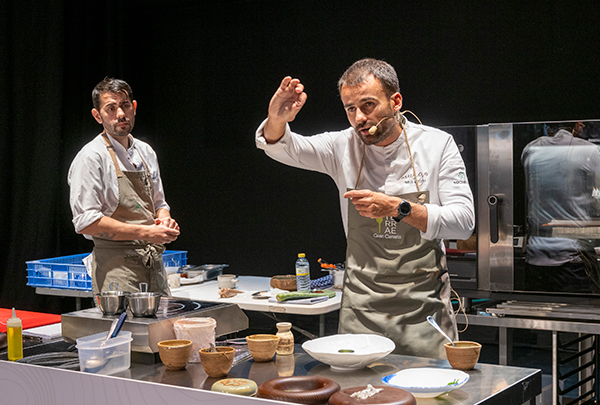
Canarian chef Borja Marrero fills the Terrae auditorium with the flavours of his land, a rural cuisine deeply rooted in the village of Tejeda.
With great imagination and mastery, Marrero has been bringing his island to every bite for almost a decade, having trained in the kitchens of greats such as Ferran Adrià, Juan Mari Arzak and Ramon Freixa. "With the aim of setting up the restaurant where the produce was, we set up on a family farm where we raise livestock of local breeds, such as Tenerife and Majorero goats and Canary Island sheep. The only foreign breed we have is the Jersey cow, which we like for its cheese-making ability".
Together with his chef, Adrián, he opened the Congress stage to demonstrate the preparation of some of the dishes that make up his menus, "60% of which are made with wild plants that grow in the caldera, the largest volcano on the island, formed by humidity, and at the lowest point of which is our farm", accompanied by the pine forest of Tamadaba and the Pico de las Nieves. This is where two of the raw materials that are the main ingredients of his cuisine come from, such as the tuner and the bark of the Canary Island pine, "the one that burns and never dies, a strong pine that identifies all of us Canarians". He has also prepared some pastries, such as false pine bark caviar, pine bark ravioli, a completely vegetarian petit four made with pine bark emulsified with prickly pear mucilage, "which has the same texture as egg white", and the eye-catching pine bark milhojas, with three crispy sheets of bark filled with sheep's milk pastry cream, egg yolk, sugar and pine bark, which he has served live on the plate.
"Don't call us hippies for defending our environment".
Borja went on to explain his "controlled obsession with his territory", pointing out that it is the best virtue a chef can have. "I believe that in order for young people to continue to value their rural environment, we must not allow them to call us gastronomic or territorial hippies, because this makes the new generations feel inferior," he explained.
He went on to present other creations such as the Cuajada salada de leche de vaca jersey de vaca jersey de su ganadería con caldo corto de corteza de pino ligado con mantequilla de cabra y cristal de hierbas, "un plato que identifica 100% nuestro territorio" (a dish that identifies 100% of our territory); a Medregal, a blue fish pickled in pine bark and herbs and tomato water, "mixed with Lanzarote Spinola white wine, similar to fino, and spinach or cabbage to use as bread", or an Aquanaria sea bass with trebolina pilpil, toasted demi and Canarian pine bark caviar, "made with fumé and crushed bark, then spherified and osmosed with the fat of the sea bass and immersed in brine so that it takes on the iodine point of caviar", or a tunera pie, a lemon cake that replaces the lemon with the small, more citrusy tunera, bathed in a sweet tunera soup.
Finally, alluding to his famous cheese soup with bienmesabe, "which in our case is an almond paste with egg and sugar", he showed off some of his own cheeses, including "a Jersey cheese cured with vinegar, a local flat cheese; a cheese cured with pine blossom, or pinocha; and a cheese cured with coffee from the crushed skins of a neighbour's coffee plantation, the highest in Europe".


